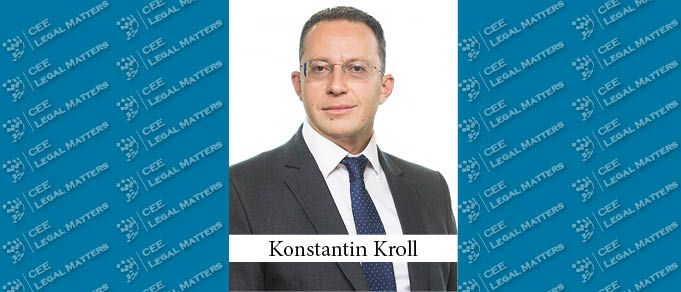Why would a lawyer in private practice strive to make partner? That may come across as a strange question. An old saying holds that a soldier who doesn’t aspire to become a general is a bad soldier. Partnership as an ultimate goal is often taken for granted.
Yet there is another old saying: be careful what you wish for. The reality is that many talented associates are not aware what partnership really entails.
Apart from the financial rewards, the prestige and recognition from the market and peers, partnership comes with responsibilities. Beyond being a reward for many years of hard work and past achievement, which of course it is, it is also the beginning of a new stage in a career in private practice.
To me partnership is not a badge of honor; but it is necessary to be able to build and develop a practice and realize full professional potential. In other words, partnership is not the end goal; it is a beginning.
A partner faces many challenges in any jurisdiction, but CEE presents many unique challenges as well. As someone who has observed the demands placed on partners of international law firms in the region for over a decade, I can testify that these challenges are growing.
Partners are expected to generate business and serve clients – fair enough. But the devil is in the details. It is not enough to win a client’s confidence, to get work in a competitive market, to show commercial awareness, and deliver stellar legal advice. In addition, the business generated by partners needs to conform to specific criteria: partners need to charge hourly rates, cannot write-off fees above a certain threshold, and need to achieve certain utilization levels, both for themselves and their teams.
While everyone agrees that partners are supposed to be in control of their responsibility to win work and perform it to a high standard, the reality is that the metrics described above are largely beyond their control. To illustrate: hourly rates are often driven up by the demand of the headquarters of international firms, and so are the utilization and write-off thresholds. Fortunate are those local partners in CEE of international law firms who have final say on what the appropriate rates for their market are, what the realistic utilization rates for their associates are, and what levels of write-off will be palatable to their clients. The truth is that these decisions are often made elsewhere, without proper awareness of the specifics of local markets.
Hourly rates in most CEE markets have doubled (and in some instances tripled) over the past 20 years. The billable hours expectations at international law firms in the region have grown to match those of the New York and London markets, and the flexibility on write-off has diminished. At the same time, competition has toughened and clients have become more sophisticated and capable of doing more complex work in-house, thus they are, to a greater extent than before, able to extract the best value out of their outside legal advisers.
Why are partners in CEE jurisdictions not more forceful in explaining the peculiarities of business in their markets to global management? In fact, they are usually quite vocal – but only up to a point, so they do not start the global firm questioning whether the economic realities of a local CEE market match that global firm’s benchmark for performance, potentially justifying the withdrawal of the firm from that jurisdiction.
So here is the paradox. International law firms are driven by the goal of raising profitability, presumably for the benefit of their partners as the ultimate stake-holders in the business. This is similar to corporations striving to pay higher dividends to their shareholders and increase shareholding value. But there is a key difference between shareholders in a company and partners in a law firm. Shareholders will always be shareholders – while partners can only enjoy higher returns on their equity while they remain partners. And to remain partners they need to achieve metrics in their performance which may become incompatible with the market they operate. A Catch-22 scenario, no?
In my view the future in CEE belongs to those international firms able to recognize the need for greater flexibility in the local markets and delegate more power in decision-making to their local partners. Otherwise those partners may well decide that they will be better off operating their own independent practices and law firms – and isn’t it freedom that many lawyers really seek when they aspire to become partner in the first place?
By Konstantin Kroll, Partner, Dentons
This Article was originally published in Issue 6.11 of the CEE Legal Matters Magazine. If you would like to receive a hard copy of the magazine, you can subscribe here.

